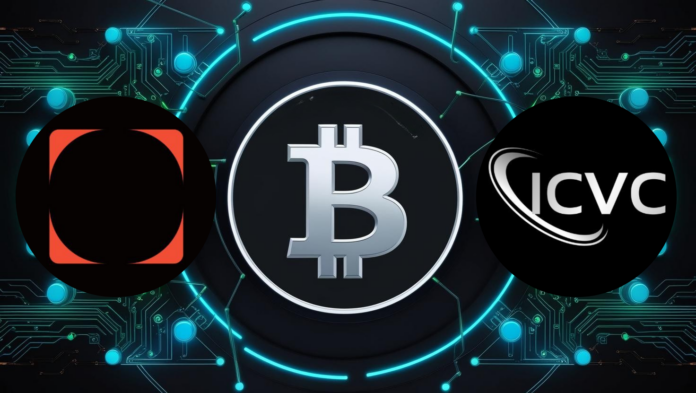The first investment from ICVC has landed, and it’s gone to a project tackling one of Bitcoin’s longest-running tensions—how to mine it better, smarter and more fairly. The recipient is Loka Mining, a decentralised protocol focused on reshaping the way Bitcoin mining works, and it’s doing it with help from Internet Computer Protocol (ICP) tech.
While decentralisation has been a promise for years, the mining side of Bitcoin hasn’t exactly followed suit. Large-scale operations with deep pockets tend to dominate, benefitting from cheap electricity deals and specialised equipment that most ordinary users can’t access. Loka’s approach aims to reset that imbalance. Instead of relying on massive farms or corporate warehouses, it wants to distribute mining activities across a broader network—one that’s more open, more collaborative and, according to ICVC, more aligned with where Bitcoin should be heading.
For ICVC, this investment isn’t just a financial choice—it’s a signal. As their first public move, this backer is putting early money into a model that combines novel technical architecture with a clear commercial goal. The team behind Loka isn’t short on ambition either. They’re betting that their approach can break through the old bottlenecks of energy costs, geographical centralisation and equipment gatekeeping by using ICP smart contracts to run much of the logic behind mining coordination. That includes mechanisms for rewarding participants, verifying activity and keeping operations live without relying on any one player to run the show.
The Internet Computer Protocol connection gives Loka a twist. While many mining projects are built on Bitcoin-native tech or branch out to Ethereum-style platforms, Loka is leveraging ICP’s low-cost and low-latency architecture. That’s part of what makes ICVC confident that Loka can do what others have attempted and abandoned. ICP provides a way to keep decentralised processes running with high speed and minimal expense—a handy edge in a sector where efficiency makes the difference between profit and loss.
ICVC has also been upfront about what caught their eye. One was the simplicity and directness of Loka’s value proposition: there’s a clear bottleneck in decentralised mining, and the team thinks they’ve got the tools to deal with it. Another was the strength of the founding team. Led by Andy—known on X as @TalkinAndy—the project is run by people with a track record in building things that last. While names alone don’t guarantee results, ICVC clearly sees this as a group worth betting on. They’ve taken time to study the market, refine the technicals, and roll out their plans without overhyping early on. That kind of discipline tends to appeal to investors looking for depth rather than noise.
While details on the size of the investment haven’t been disclosed, the messaging from both sides suggests it’s a meaningful step. This isn’t a one-off cheque tossed at a passing idea—it’s the beginning of a partnership. For ICVC, that means offering more than funds. It includes strategic input, connections to other projects in the decentralised finance and infrastructure world, and possibly some influence in shaping how Loka expands.
There’s also a bigger context. Bitcoin mining has become a hot topic again, especially with the latest halving event tightening rewards. That’s put fresh pressure on miners to find smarter ways to stay profitable. At the same time, environmental scrutiny continues to grow, and jurisdictions around the world are reassessing how they view mining operations. A decentralised model—especially one that can make use of idle computing resources and optimise power consumption—has obvious appeal. If Loka can show that their system works not just in theory but at scale, the timing could be on their side.
For the broader decentralised ecosystem, this is an interesting move too. ICP-backed projects have seen renewed attention lately, particularly those that push technical innovation rather than social hype. Loka falls into that category. It’s not a lifestyle token or a community meme play—it’s an infrastructure piece with strong engineering roots. That puts it in the same class as other next-gen protocols aiming to fix the plumbing behind crypto without needing to dominate the spotlight.
ICVC is framing this as the first of many. They’ve made it clear that their investment lens is tuned toward solutions that fix structural problems in the crypto space. Whether it’s inefficiencies in consensus, issues with user onboarding, or gaps in trustless coordination, they’re looking for teams that bring technical edge and strategic clarity. Backing Loka first could set the tone for what’s to come. It hints that ICVC wants to build a portfolio that’s heavy on protocols, tools and underlying layers—rather than chasing headlines or fleeting hype cycles.
For now, Loka seems to be focusing on delivery. With the ICVC backing in place, it’ll be rolling out test networks, onboarding miners, and fine-tuning the incentives that make its model work. The decentralised mining community will likely be watching closely, as will other investors looking for signs that this approach can generate reliable returns without repeating the mistakes of earlier cycles.
There’s no shortage of ambition here. But the partnership between ICVC and Loka suggests that ambition is being matched with preparation and clarity. The roadmap appears to be grounded, the tech is built on a well-tested protocol, and the team has experience that goes beyond pitch decks. If that combination holds, Loka might just pull off what many others have attempted—decentralised mining that’s not only technically sound but also commercially viable.
ICVC’s announcement may mark the start of a new investment cycle, where infrastructure plays get the attention they’ve long deserved. And while first cheques often carry extra symbolism, this one seems to come with something more: a shared vision of how crypto can actually work for more people, with fewer middlemen and smarter systems. That vision is still being built, but with this early move, ICVC and Loka have put their names firmly on the blueprint.


